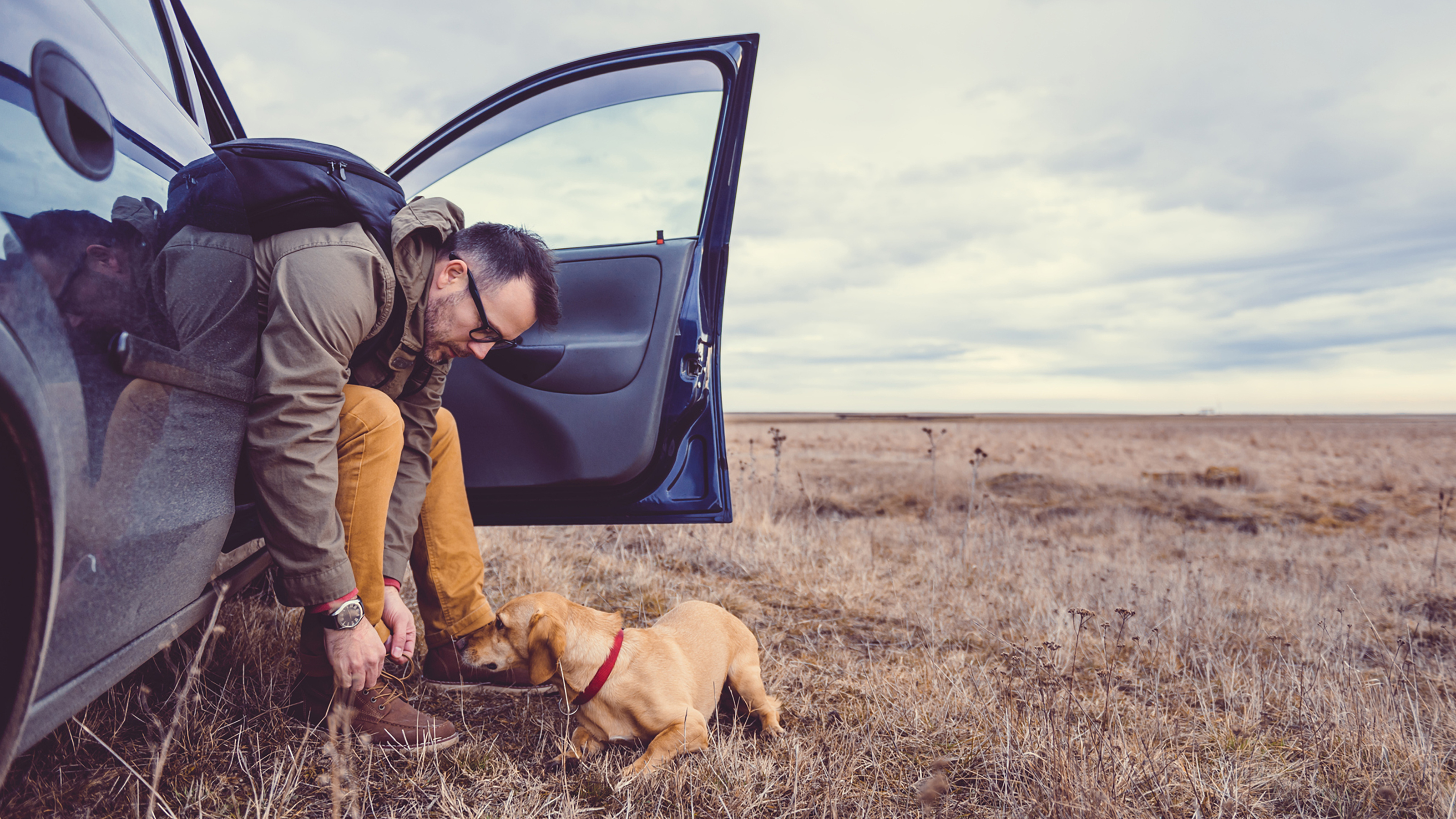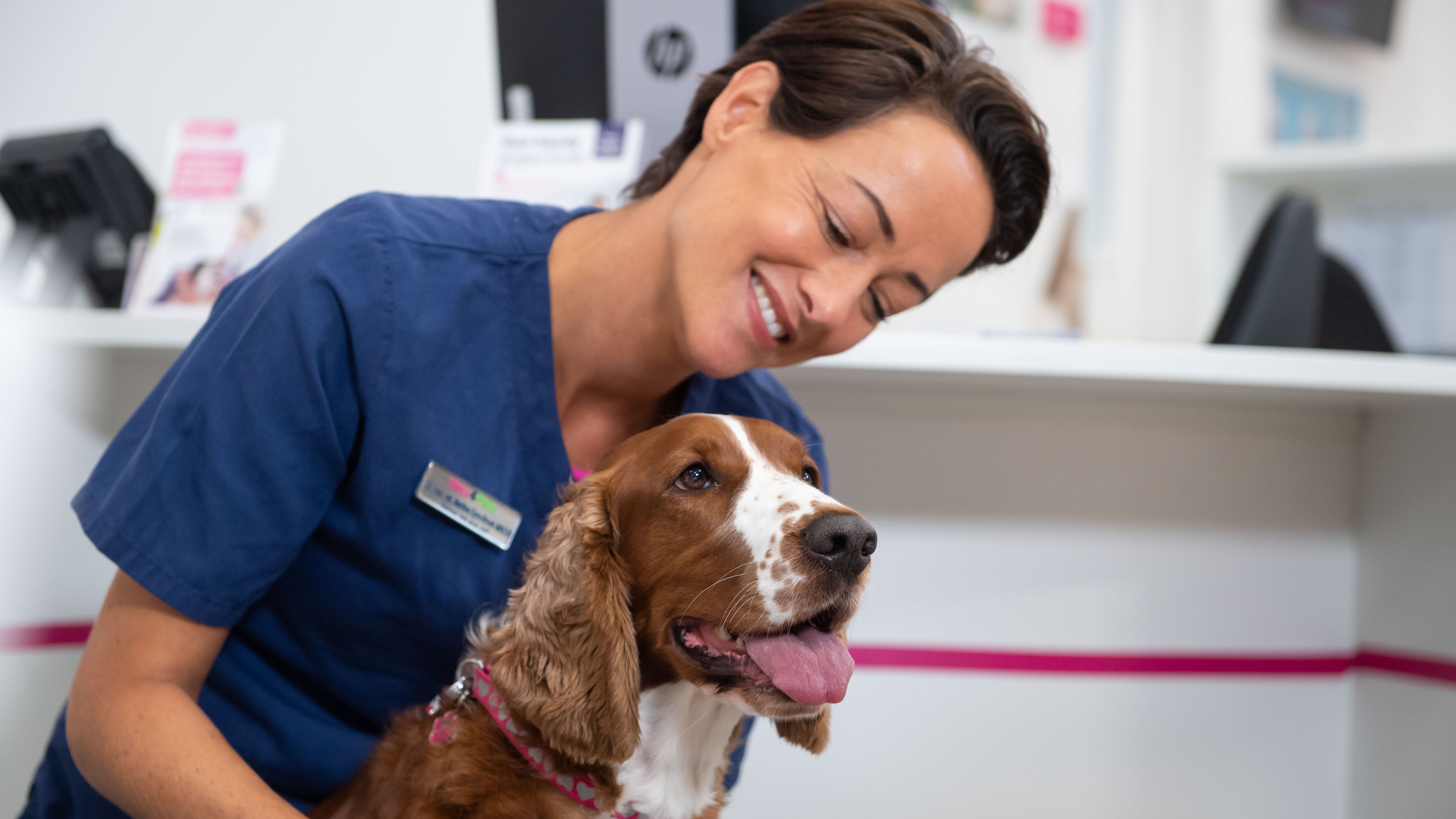
How to Restrain Your Dog in the Car
Crates, harnesses and guards.
Car travel is really important for many dog owners, but did you know that car travel with pets can be very dangerous if they aren’t properly restrained, just like us! Unrestrained dogs can be a distraction, as well as being a risk to themselves and others in a crash. So, what do you need to do to keep you both safe?
The Highway Code from the UK Government states that “a seat belt harness, pet carrier, dog cage or dog guard are ways of restraining animals in cars”. These are the safest and most appropriate ways to restrain your dog in the car, and it’s important to choose the restraint-type that suits you and your dog the best. Please note that dogs should never be restrained just by their collar while in the car. For more information on car travel, see our guides on travelling to the vet.
If you have any more questions about travelling in the car with your dog, speak to our colleagues in practice.
More about safe car travel for dogs
- Dogs may be a distraction, climbing between seats or trying to get on your lap. Even checking your dog is ok or reaching out to pat them can be enough. Distractions of even a second or two can be enough to cause a crash, which sadly can have awful consequences. Restraint, and keeping dogs in the back of the car, can hugely reduce the potential for distraction.
- Accidents happen. Even the most careful of drivers can have a bump, and unrestrained dogs are more likely to injure themselves as well as injure you. The force of a collision can cause unrestrained pets to be thrown around the car, and this momentum can seriously injure both them and anyone in the car. Just like us, seatbelts save lives.
- After a crash an unrestrained dog may be scared or even aggressive, especially if they are in pain and confused. Having them properly restrained will make accessing them safely to help them much easier, and lessen the risk of them running off or lashing out in fear.
With a whole range of products available it can feel overwhelming to know what to purchase for your dog.
- What size dog do you have? This may affect practicality, especially for larger kit such as crates.
- How often will you use it?
- Is it crash tested? Some products are crash tested, which is a better choice than a non-tested product.
- How does your dog like to travel? Although safety is the main concern, if your dog hates one way to travel and is very happy with another, you can factor this in. If your dog doesn't like any safe form of restraint, then behavioural training and guidance will be needed to get them used to using these.
Dog guards are fitted to your vehicle between the back of the seats and the boot. This keeps your dog within the boot if you put them there, and prevents them climbing over the seats. This is a similar premise to using a crate, but because boots are generally more spacious, dog guards work more to protect car passengers than the dog or dogs themselves.
A harness fits around the chest and neck, and should fit well – You should be able to get two fingers between your dog and the harness. Harnesses should also be comfortable. Padding will be important in a crash, but you also want your dog to feel happy in the car, and making sure they are comfortable for journeys will help them enjoy car rides. Once your dog is fitted with the harness, car harnesses then fit into your car’s seatbelt fittings. For very small dogs you can also use specialised dog booster seats, but your dog must always still be directly restrained, not just placed in the seat. A harness is generally considered to be the best and safest choice of restraint.
Especially for crate trained dogs, a dog crate can be an option for travel, although crates are large and can be unwieldy – it’s important to have enough space for one! Crates need to be secure within the car, and your dog can then sit within the crate for travel. Crates need to be big enough that your dog can stand up, lie down and turn around comfortably but they shouldn’t be too big – in the case of an accident, a large crate will give more room for your pup to be thrown around and increases risk of injury.
Health Plans to keep your dog healthy
At Vets4Pets we offer a range of Health Plans that make essential routine treatments more affordable. You'll save money on things like annual vaccinations, flea and worm treatment and routine health check-ups.

Dog Advice
Read more of our expert dog advice to keep your dog happy and healthy.
